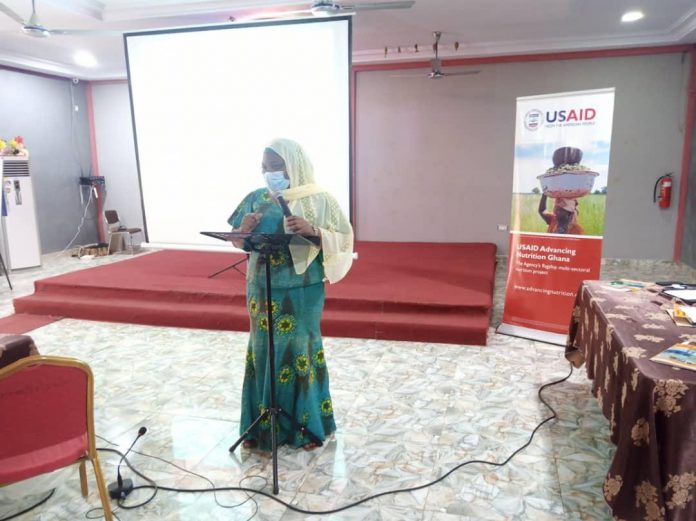Dr Hafiz Bin Salih, the Upper West Region Minister, has stated that failure to provide the nutritional needs of children has dire consequences for the nation in terms of productive human resources.
He argued that nutrition was one of the critical paths to promoting early childhood growth and development, pointing out that a malnourished child faced the risk of diseases, stunted growth and early death.
Dr Bin Salih stated this in a speech read on his behalf by Madam Fati Koray, a Deputy Coordinating Director at the Upper West Regional Coordinating Council (RCC) during the first regional learning event on multi-sectoral nutrition planning organised by USAID Advancing Nutrition Ghana in collaboration with the Upper West RCC in Wa.
“A child who did not get the right nutrition may grow up poorly developed physically and mentally and as a result, he/she may not do well in school and his/her chances in getting a decent job becomes limited with high risk of being a burden to society”, he said.
Dr Bin Salih acknowledged the continued efforts by government to improve nutrition on various fronts; citing the National Nutrition Policy for Ghana (2013-2017),to ensure optimal nutrition and health of all persons living in Ghana in order to enhance capacity for sustainable economic growth and development.
The Regional Minister mentioned interventions like educating and supporting young mothers to practise the recommended Infant and Young Child Feeding (IYCF) and supporting Community Management of Acute Malnutrition (CMAM).
He said through the interventions, there was some improvement especially in stunting among children under five in Ghana which reduced marginally from 19 per cent in 2014 to 18 per cent in 2018.
Dr Bin Salih also pointed out that in the Upper West Region, 22 per cent of children under five were estimated to be stunting in 2014, but that reduced to 15 per cent in 2018 and the rates according to him were at unacceptable levels.
“We have no choice, therefore, than to double our efforts to address malnutrition. In doing this, it is important for all stakeholders to work together and better coordinate their efforts from the national, all the way to the local levels”, he said.
“I am happy to note that one of the things that the USAID Advancing Nutrition Ghana Project is doing, is to improve multi-sectoral collaboration and coordination in nutrition planning and implementation”, the Regional Minister added.
He commended USAID for establishing District Nutrition Coordinating Committees across five districts in the region and urged the selected districts to explore various options to properly align the committees along the District Assembly structures to ensure their functionality and sustainability.
Mr Yunus Abdulai, Chief of Party, USAID Advancing Nutrition Ghana, said the flagship multi-sectoral project seeks to improve the nutritional status and health of vulnerable populations around the globe.
In Ghana, he said, the project provided technical support and assessment services to advance the Government of Ghana’s efforts to improve district planning for equitable delivery of services that promoted household resilience and early childhood growth and development.
Mr Abdulai noted that the objective of the project, which was being implemented in 17 districts across four regions namely; Upper West, Upper East, North East and Northern Regions, was to improve knowledge and understanding of multi-sectoral nutrition programming approaches and applicability for sub-national planning.
Participants for the regional learning events included the 17 District Assemblies, the four RCCs, civil society, academia, private sector and other relevant groups.
Source: GNA


